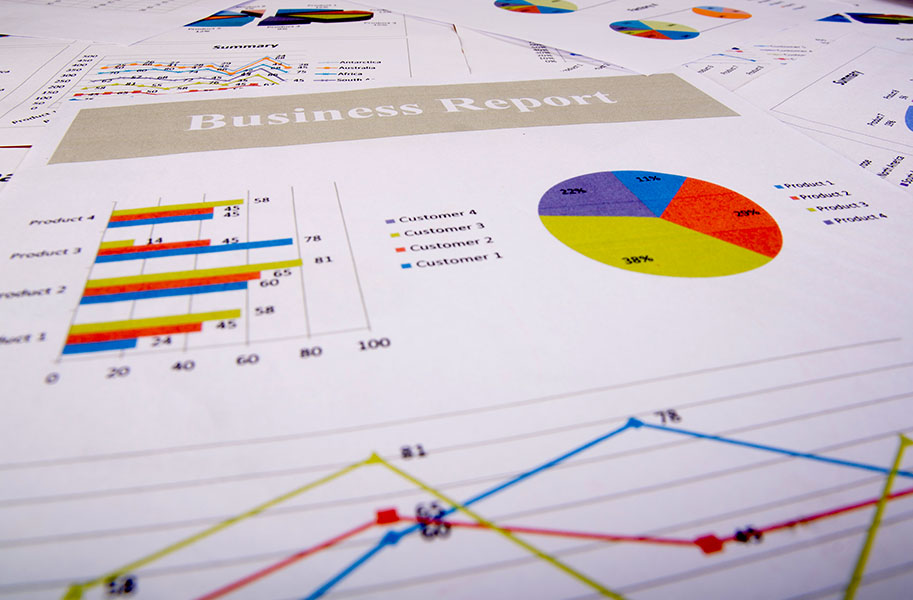After the pandemic, inflation, regional bank failures and the debt ceiling crisis, it was hard to imagine that the United States would be faced with this recessionary wave so quickly. It's been a while since we've heard any bad news from the US, knowing that everything that happens there ends up impacting them in the short or medium term...
French real estate is currently experiencing a major upheaval of the forces that have supported it over the past twenty years. After a golden period characterized by abundant liquidity and stimulative policy measures, the market has reached record levels, making a turnaround inevitable...
Real estate prices are finally starting to decline, although the decline is neither uniform everywhere nor at the same speed. On average, French real estate has increased by more than 34% since 2016, boosted by zero-percent interest rates and a desire for space after lockdowns. However, the real estate frenzy seems to be reaching its limits...
France - Market 2024...!
Real estate prices are finally starting to decline, although this decline is neither uniform everywhere nor at the same speed. On average, French real estate has increased by more than 34% since 2016, boosted by zero interest rates and a desire for space after the lockdowns. However, the real estate frenzy seems to be reaching its limits.
In their latest economic letter, the notaries of France report worrying signs such as a drop of more than 21% in sales of existing homes in one year in February, and a stagnation in sales of new homes, while construction starts fell by 23.7% in 2023. This decline is due to a combination of factors strongly influencing real estate prices, like a long-acting drug, the consequences of which will be felt for some time.
Everything that goes up eventually comes down, a principle well known to the markets, even if sometimes forgotten. Real estate remains a safe haven, however, with prices that have continued to rise since man first built the fence and invented the title deed. A quick glance at the real estate price curve since 1900 reveals that they have only fallen on rare occasions: after the Great Depression of 1929, during the 1990s, and following the 2008 financial crisis caused by subprime mortgages.
Outside of these periods, prices have always rebounded, or even ricocheted. This resilience reinforces the idea that real estate is a safe bet. Owners who bought in the early 2000s, in 2010 or in 2016 can congratulate themselves on seeing their assets double or triple in value, having been able to take advantage of these rare drops to seize opportunities. Every crisis brings its share of opportunities, particularly in real estate, where each drop is followed by an even more vigorous rebound.
Housing, in addition to being a very profitable investment, is an essential need. Regardless of the state of the economy, political decisions or trends, everyone needs a place to live, and the price matters little. To buy, people do not hesitate to get into debt for long periods, encouraged by banks, to lend at very low rates. Between 2016 and January 2022, it was possible to borrow at 0.8% over 20 years or 1.25% over 25 years, with monthly payments of €451 and €388 respectively for each €100,000 borrowed.
As a direct result, the dream of owning your own piece of land became accessible. Demand exploded, encouraged by tax exemption policies, aid for access and renovation, as well as by speculators. The spectacular development of short-term rentals, which can double or even triple the profitability of a property, is the most visible effect. Prices of old properties have jumped by more than 36% on average over the same period, creating a real estate bubble that few wanted to acknowledge until last year.
It all started in January 2022, when the last traces of COVID were disappearing, interest rates remained very low, and peace reigned in Europe. News, affecting all French people, has emerged: real estate loans would now be more strictly regulated, with banks required to comply with strict conditions. The duration of loans must not exceed 25 years, and the debt ratio cannot exceed 35%. To curb the speculation responsible for the surge in housing prices, including in the rental sector, banks must tighten their conditions for access to credit.
They now require a higher personal contribution and a perfectly calibrated repayment effort, all over shorter periods. At first, this did not prevent prices from continuing to rise; the most expensive properties, over €280,000, were even selling faster and faster. Many modest buyers found themselves excluded from access to property, but the others did not abandon their projects. It was not until early June that the other ingredients of our formula were gradually added and the real estate fever finally subsided, perhaps even a little too much.
Here is the second ingredient: inflation. Since January 2022, the consumer price index has climbed by 10.4%, with an increase of more than 30% for energy and 19.4% for food. These two categories represent two of the three largest items of expenditure for the French. With salaries having increased by only 4 to 5% according to estimates, purchasing power has been severely impacted, leading to the postponement of many real estate projects. In the new construction sector, the crisis is palpable.
The prices of materials, transport and energy have soared so much that hundreds of properties, just built but now unaffordable, are no longer finding buyers. As a result, developers have completely lost their construction rate, reaching historically low levels. Obviously, our third ingredient, the increase in key rates, is making the situation worse. The key rates, the central banks’ anti-inflation weapon, have climbed from 0 to 3.5% by the end of winter 2023.
This has the effect of making credits more and more expensive, discouraging borrowing. Today, borrowing €100,000 over 20 years costs €609 per month, and €537 over 25 years, or 35% and 38% more than two years ago for the same amount. This increase in rates has blown many budgets, including those of the middle classes. In addition, properties that were worth €100,000 are now listed at €110,000, making the dream of owning your own little piece of land even more remote.
But let’s start again: tightening credit conditions, rising rates and falling purchasing power. With these elements, it is not surprising that the real estate fever is subsiding. But that’s not all. Another key factor, the one that will prolong the calming effect on the market, is France’s entry into recession six months ago. In a recession, value creation slows down, stagnates, and the same goes for real estate.
The Great Recession of the 1990s showed that the economy and real estate prices can remain stable. A recession brings its share of difficulties: tight cash flow, unemployment, austerity, loss of competitiveness, cautious banks and an uncertain future. It is really not the best time to consider real estate projects. Potential buyers wonder if they will still have their job to pay off their house or how much they will lose if they have to sell urgently. Borrower morale is at its lowest and those who can buy cash prefer to invest in more profitable foreign markets.
The result is the long-awaited correction. A bubble bursts when the financial effort exceeds the buyers’ capacities. Many buyers withdraw and sellers, forced to negotiate, accept reductions. Currently, buyers are obtaining price reductions of 10 to 15%. Real estate professionals were waiting for this correction to rebalance a market where housing prices had reached levels disconnected from local realities. In the 1980s, it took 4 to 5 years of average wages to afford a primary residence.
In 2019, it was 7 years, and in 2022, it varied from 8 to 10 years. In some tourist areas and in Paris, where Airbnbs have multiplied, the real estate frenzy has pushed residents to find accommodation elsewhere. While this is unfortunate for those who bought at the peak of the market, the current situation is viewed positively by those who were expecting a correction.
The question is how far this correction will go and when we can hope for a lull. In February 2024, banks granted an exceptionally low volume of mortgage loans, reaching only 7.6 billion euros, three times less than in 2022. Faced with this drastic drop, banks had no choice but to slightly ease their lending conditions, leading to a slight decrease in the risk premium and the rates offered. However, they continue to require a significant contribution and strictly maintain the 33% debt ratio rule.
This is an encouraging first step, especially as inflation is finally moving closer to the 2% target. France ended the year with inflation at 4.9%, starting the new year at 3.8% in January and 2.9% in February. While this decline is excellent news, much remains to be done to absorb the price increases recorded since the beginning of the crisis and adjust the economy, a process that could take months or even years. The decline in inflation raises hopes for a reduction in interest rates, the third factor in the crisis. Although Christine Lagarde has been cautious on this subject, the positive results suggest a first reduction in refinancing rates in June.
However, a rate cut is unlikely to have an immediate impact on the real estate market or on borrowers. According to the Banque de France, rates would have to fall below 2.3% for it to have a significant effect, which is unlikely this year. Moreover, the economic slowdown will continue to disrupt the real estate market, as France has indeed entered a recession despite a tepid growth of 0.9% last year. Despite a slight recession, with GDP declines of -0.03% and -0.02% in the last two quarters of last year, France is going through a complicated economic period. *
It ranked third for the worst economic performance in Europe in the fourth quarter. However, GDP is not the main indicator of concern; economists are particularly worried about the PMI index. With a score of 44.6 points, France is in last place on the continent, behind Portugal, Greece and even Germany, which, after falling below 40 points last summer, has managed to recover since. The Purchasing Managers’ Index (PMI) assesses the level of activity in a sector based on order books, personnel records and actual production of companies.
A PMI above 50 indicates an expansion of the sector, while a PMI below 50 signals a contraction, the closer the number is to zero, the deeper the contraction. This index is a true barometer of the economic health of a country. A falling PMI clearly reflects a decrease in orders, production and hiring, announcing difficult times. The PMI for France, illustrated by the blue line at the very bottom of the graph, does not inspire much optimism and suggests a poor outlook for business.
This is why the housing bubble will likely continue to deflate until the end of the year, a widely accepted hypothesis. Rising interest rates have led to a decline in house prices, and it is estimated that these prices could fall by another 10 to 15% nationally. Although long-term interest rates in France reached 3.60% before falling to 2.50% and then rising again to 2.8%, this reduction is still insufficient to compensate for the loss of household purchasing power. Despite a gradual improvement in credit conditions, most buyers will not return to the market with the same budget as before, which should intensify negotiations in the coming months, with discounts of up to 25% in some situations.
Many buyers will wait for further rate and price cuts, while some sellers, particularly those who bought less than three years ago, may postpone their plans to sell. While we should not completely erase the performance of the last eight years of the housing market, a reduction of a quarter in prices would bring us closer. This situation could offer great opportunities around Christmas for those who can afford to invest, reminding us that crises often bring opportunities. We are thinking in particular of these new investors with substantial portfolios, ready to massively buy all the properties within their reach.
In the United States, real estate investment funds, or REITs (Real Estate Investment Trusts), occupy a preponderant place on the real estate market. The most notable of them, Blackstone Real Estate, gathers capital to acquire or build real estate that it then rents out. In 2022, American REITs held more than 535,000 properties with a total value of $4.5 trillion, making them the largest lessors in the world. They benefit from the support of the American authorities who are counting on them to stabilize a real estate market weakened by over-indebtedness.
In France, there are similar entities called SIICs (Sociétés d’Investissement Immobilier Cotées), with nearly 25 listed companies, such as Unibail-Rodamco, Klépierre and ICAD, the latter specializing in shopping centers. In addition to SIICs, SCPIs, property dealers, and social landlords such as 3F or Batigere, as well as the Caisse des Dépôts et Consignations, France’s largest landlord that houses more than half a million households, play a crucial role in the French real estate market.
With the recent increase in property tax and the increasing complexity of administrative procedures to obtain a loan, buy, renovate, rent or resell, some wonder if the government is preparing a restructuring of the real estate market. While this hypothesis may seem exaggerated, it reflects the current challenges that investors and owners are facing. This may seem conspiratorial at first, but there are countries where housing is largely controlled by the state or public or private entities.
This is the case in several socialist countries, such as Cuba or China, often criticized but also often imitated. If such a scenario were to occur in Europe, it would not happen overnight. The transitions would be gradual, spread over 10 to 15 years, and would take place painlessly. However, rest assured, real estate investment funds, whether public or private, are still far from having the necessary means to radically transform the landscape of our housing. Replacing millions of buyers each year and challenging the French people’s love of property seems unlikely. We are nevertheless curious to see how the situation will evolve.
Our asset managers are here to help you!
Cut out unnecessary middlemen...while protecting your assets...!
- See also !






